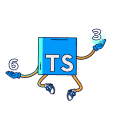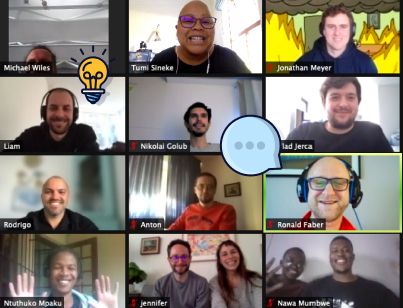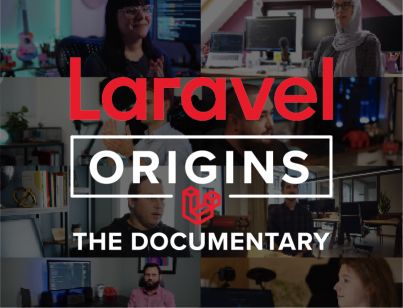State of the Software Developer Nation
In this report
Introduction
Over the past two years, software has proven to be a formidable force. Even when entire industries had to fold, the African software engineering industry experienced unprecedented growth in 2021. In South Africa alone, 89 tech startups, including the likes of Yoco and LifeQ, raised over R5 billion together.
As South Africa's largest tech talent marketplace, we've seen the second-order effects of this from the frontlines: Our account managers and talent advisors interact with hundreds of software developers and hiring companies every day. In the past year, we’ve seen record numbers of companies hiring software developers on OfferZen, rising salaries, and developers in more demand than ever.
At the same time, many things are still in flux: How many companies will return to the office after the big shift to remote? How are companies dealing with the international competition for local talent? How are developers looking at their career development after so much uncertainty?
The data of this year’s annual report shows that South African developers may be staying in their current jobs for longer, which could make hiring local talent harder. Developers now also care much more about work-life balance.
I’m very grateful that we’re able to bring you this annual data report on developer careers for the third time. This wouldn’t be possible without the support of the over 3200 South African developers who responded to our survey.
I hope you find the report as insightful as I did. If you have any feedback or questions, give me a shout @PhilipJoubert on Twitter.
I’m looking forward to the discussions!
Careers
South African developer salaries have increased — The highest paying roles are on the backend.
South African developer salaries have increased
Senior developers have seen the biggest salary increase since 2019
Years of Experience
Since our first report in 2019, developer salaries have, on average, increased by 7.4%.
Developers with more than 10 years of experience saw the biggest increase: They are now earning a whopping 19% more than in 2019.
In order to give further context on the distribution of our data, we’ve also included the 25th and 75th percentile salaries in this and the following salary graphs.
Backend developers earn the highest average salaries among South African developers
Years of Experience
Backend developers earn the highest average salaries, followed by full stack and frontend developers.
On average, backend developers earn 27% more than their frontend counterparts. The difference between these roles is widest for senior developers with more than 10 years of experience, at a steep 33%.
Software developers still earn more in Cape Town – but Pretoria is catching up
Years of Experience
Cape Town is still the best place to be for developer salaries: Capetonian developers have earned the highest average salaries in South Africa for three years in a row.
In Gauteng, however, salary outlooks have changed since last year: Pretoria's developer salaries have caught up with Johannesburg's and are even on par with Cape Town's from 6 years of experience onwards.
FinTech and Cloud Technology are still the best paying industries for South African developers.
Since 2019, FinTech and Cloud Technology have continuously been the best paying industries for software developers.
However, since last year's report, developers working in retail or eCommerce and Telecommunications have seen the biggest salary growth at an average 9%. The lowest increase since last year came to SaaS developers with a modest 2% pay rise.
The best paying programming languages in South Africa are Go, Kotlin, and Ruby
Years of Experience
If you’re looking to earn more money as a developer, it still pays to master niche languages: South African developers working with Go, Ruby, and Kotlin continue to earn the highest average salaries.
Tech's gender pay gap
Female developers in South Africa still earn less than their male counterparts
Years of Experience
On average, female developers earn 17% less than their male counterparts. This gap has increased by 2% since our 2021 report. At the 6-10 year experience mark, this gap even increased from 3.5% to 15.5%.
The gender pay gap is widest between developers with more than 10 years of experience: Here, women earn 19% less than their male counterparts. This is despite female survey respondents being proportionately represented across industries, languages, and location.
We hope that, by providing salary transparency on our job platform and in reports like these, we will equip all developers with the knowledge and confidence they need to earn the salary they deserve. We're also planning to publish further insights on this topic in the future.
Tech Trends
South African developers are excited about Cryptocurrency and Python — AWS is winning the cloud wars.
JavaScript reigns supreme
TypeScript is closing the gap on JavaScript

TypeScript jumps the ranks of the most used programming languages:
2021
2022
In 2022, JavaScript is still the most used programming language, followed by C# and TypeScript.
TypeScript seems to be up and coming and has overtaken Java to claim third place, narrowly beating developer-favourite Python.
But how does this picture change across the different developer roles? It's no surprise to see that frontend and full stack developers are using JavaScript most. Developers working on the backend use Java as their top programming language.
Go is rising up the ranks of most desired programming languages

Go has gained popularity
2021
2022
Python remains unchallenged as the most desired programming language among South African developers – across frontend, backend, and full stack developers!
TypeScript is still the second most desired language, but only just: It's getting some hot competition from Go which has overtaken JavaScript to claim a pretty tight third place.
React has overtaken Angular

React is up on the leaderboard
2021
2022
Since our 2021 report, there's been a lot of movement in framework rankings: Node.js is now South African developers' most widely used framework and React has moved from fourth to second place! That's the biggest jump in usage for a framework since our 2021 report.
React is also the framework most used by frontend developers, while backend and full stack developers work mostly with ASP.NET.
React is the most wanted framework by South African developers
Given its surge in usage, it should come as no surprise that React is still the framework South African developers want to work with most.
The real surprise? Even backend developers chose it as their most desired framework: 1 in 4 backend developers want to work with the frontend framework in 2022!
The future of tech? AI, Cloud computing, and Cryptocurrency
Cryptocurrency is gaining ground as one of the most promising industries for 2022
We also asked South African developers which industry they thought was up and coming:
While AI, Cloud computing, and FinTech continue to be their most promising industries in 2022, there's an exciting new up-and-comer: Cryptocurrency. The percentage of developers viewing it as the most promising industry has doubled since our last report moving it from 7th to 4th place.
AWS is winning the cloud wars in South Africa
Amazon, Microsoft, and Google are the three top competitors in the "cloud wars".
When it comes to what South African developers use most, AWS is the clear leader, way ahead of Microsoft Azure in second place, across industries and almost all company sizes. In fact, Azure only seems to take the lead for developers at companies with a team size of between 5000 and 10 000 people.

If you were asked by a 5 year old what you do, how would you explain it?


Are you looking for a dev job in an industry that excites you?
Sign up to OfferZen where over 1000 legit companies reach out to you with upfront role and salary info.
Job Search
1 in 4 South African developers are looking to move jobs in the next 12 months — A good work-life balance is the number one reason they’re staying.
Developers who stay care about work-life balance and growth
Over 30% of South African developers are looking to move jobs within the next 3-12 months
2022 looks like another great year for the tech industry. That means, there will be even more competition for the best developers. Over 30% of South African developers are looking to move jobs within the next 12 months.
At the same time, there's been a 12% increase in South African developers planning to stay in their current roles for the next five years, and a 16% decrease in the number of developers currently looking for work since our last report.
Work-life balance is the number one reason South African developers stay in a job
So what's keeping the majority of South African developers attached to their current jobs? Turns out it's a holistic work environment: Since last year, developers' emphasis on work-life balance has increased by 10.8% which means it has over taken growth opportunities as the most important factor in a role.
Indeed, the top four most important reasons all speak to a great workplace: A good work-life balance, growth and learning opportunities, company culture and great colleagues.

Developer Hiring Data Report 2022
Download this bonus report to find out why developers discontinue interview processes, change jobs, and choose certain opportunities over others.
Earning potential and challenging projects are important factors for career growth
The top four factors developers want for career growth are all in a company's control, because they're about a fair compensation package and company culture.
Remote is the dominant workplace set-up
1 in 5 South African developers are actively looking for work abroad
Over all, fewer South African developers are looking to move abroad this year than in 2021. At the same time, the majority is still open to finding jobs overseas and 1 in 5 are actively exploring opportunities internationally.
Senior developers are the most likely to already be exploring new pastures, while tech leads are most likely to stay put across the different seniority levels.
92% of developers in South Africa now have the option to work from home
The pandemic has brought a lot of difficulties, but one positive to emerge is more flexibility. 92% of South African developers now have the option to work from home.
More specifically, 51% of developers find themselves in a remote-first set-up, while 41% split their time between the office and home.
1 in 5 remote South African developers work for companies based in a different city
The shift to remote work has opened a lot of new job options for developers. In 2022, nearly 1 in 5 remote developers are working for companies based in a different city than the one they live in.
Most South African developers don't receive a budget for their remote set-up
While the vast majority of developers now work remotely, only 14% receive a budget for their remote set-up. A further 22.9% do not receive any common monetary benefits in their current roles.

Find out why 1 in 3 developers will be job searching in the next year
Download our specialised Developer Hiring 2022 Report to access insights on why developers leave their role, discontinue an interview process, or move abroad.
Education and Learning
1 in 4 South African developers with a degree majored in STEM subjects – Self-taught coders use online tutorials.
Developers learn to code through university, tutorials, and breaking things
More than one third of South African software developers did not study Computer Science
The majority of software developers, unsurprisingly, chose Computer Science as their field of study.
What's more interesting is that one third studied other fields: STEM subjects are the second most common educational background, followed by Business and Humanities.
Online tutorials are the most common learning resource used by self-taught developers
In our 2019 report, we found that 1 in 4 developers are self-taught.
So how did these developers learn to code? 72% used online tutorials to teach them the basics of their craft. Another 49% spent time working on side projects, while 46% completed an online course.
Across the experience levels, only tech leads indicated that their most prevalent way to learn to code were books and other physical media.
The majority of South African developers have brought down production at least once
Practical experience is the best teacher and mistakes are an important part of a developer's education. Bringing down production is one such opportunity for learning.
Over half of South African respondents admit to having brought down production at least once during their careers!
30% of developers are looking for work in the next year. Are you?
OfferZen is the developer job platform that takes the guesswork out of job searching. Companies reach out to you with upfront role,
tech stack, and salary information.
Not job seeking at the moment? Join the OfferZen community
Demographics
The data in this report does not claim to be representative of the entire South African developer population. Any time the term ‘developer’ or 'South African developer' is used, it refers to the group of developers who took our #DevNationSurvey between 18 October and 12 November 2021.
In terms of location, we only used Johannesburg, Pretoria, and Cape Town in location comparisons due to sample size. In cases where no data slicing occurs, all 3294 valid responses were included. In order to shed light on survey participant characteristics, we’ve included the demographic breakdown of all 3294 valid responses below.
In some cases, we decided to exclude insights on ethnicity because we felt that we could not do these important topics justice in the short-form format of this report. We are, however, planning to deep-dive into these demographics in the coming months.
Race
Gender
Location
Age
Coding experience
Industries developers currently work in
Organisation size by employees
Role
Methodology
OfferZen conducted a survey to find out more about skills, work experience and job search behaviour of developers. A total of 4527 people took the online survey between 18 October and 12 November 2021. Of these responses, 3294 were counted as valid because they were from developers, or developers who manage other developers, and are currently living in South Africa.
We hosted the survey itself on Typeform and recruited respondents via emails sent to more than 30 000 software makers in the OfferZen community and social media posts to the public. Data was anonymised in accordance with GDPR guidelines and is housed separate to any and all of OfferZen’s platform data. Percentages may not always add to 100% due to rounding.
Salary in this report refers to gross salary before tax and excludes benefits. Statistical analysis was conducted to verify insights regarding salaries and we have only included claims where we have at least 95% confidence.
About OfferZen
OfferZen is a developer talent marketplace by developers for developers. Our platform matches top software talent with exciting opportunities at companies, but this effort actually encompasses a much wider mission: To help developers and their teams thrive in the tech ecosystem.
Over the last five years, this mission has manifested in a multitude of ways from our core business of helping software makers find awesome new jobs, to hosting local maker evenings and tech events or helping makers share their experiences on our blog. We want to help build an inclusive, transparent, and thriving tech ecosystem.
Want more insights like this?
Subscribe to OfferZen’s newsletter to get tech insights straight to your inbox!
This site is protected by reCAPTCHA and the Google Privacy Policy and Terms of Service apply.


